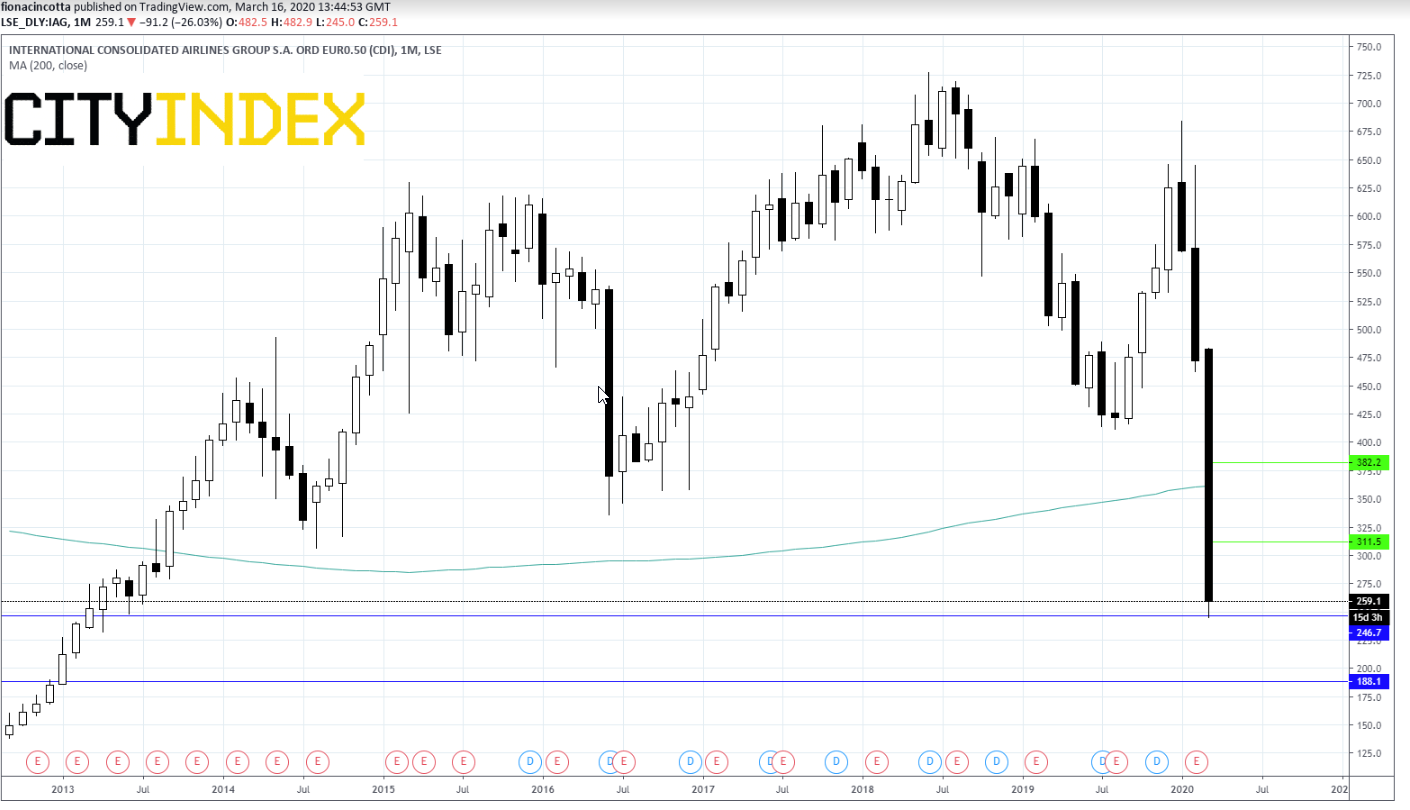Investing.com’s stocks of the week
With more countries closing their borders and restricting movement the impact on the aviation industry will be unprecedented, worse than 9/11. The same industry which helped spread the virus is also being hit the hardest by Covid-19.
Over the weekend, President Trump added the UK to the list of countries from which it will no longer accept travelers. Italy has also closed its borders while Spain and Germany among other countries impose stringent measures preventing travel in a bid to control the spread of Covid-19.
Impact So Far
The speed and the depth of the impact on the aviation industry is breath taking. British Airways axed 75% of its flights as EasyJet (LON:EZJ) and Ryanair (NASDAQ:RYAAY) grounded air crafts, with the latter saying it could ground its entire fleet; TUI has suspended most of its operations as the industry struggles to survive the impact of the flight restrictions and waning demand.
Unions are warning that thousands of jobs could be wiped out as global airline alliances call on governments for intervention to shore up an industry that is staring down the barrel of collapse.
This is no longer the smaller players like Flybe, which are being hit. British Airways has also indicated that there is a chance that it won’t survive extended travel bans. On March 5, the International Air Transport Association (IATA) predicted that a possible hit to worldwide aviation revenue would be in the region of $113 billion this year. That equates to around 20% of last years’ revenue.
The pain of the industry is clearly evident in share prices. European and U.S. air carriers have dived at a faster rate than the broader stock market. British Airways parent company International Consolidated Airlines Group (LON:ICAG) has plunged 70% over the past 3 weeks whilst the FTSE has shed 37% at the time of writing.

A Rebound Coming?
We all know not to try to catch a falling knife. A rebound in aviation stocks depends largely on the duration of the outbreak.
Most airlines should survive if the travel restriction and low booking levels are for just one or two quarters.
Some carriers, such as Cathy Pacific are already showing early signs of life. Hong Kong arrivals were heavily affected by the coronavirus outbreak with 80% of the fleet grounded on travel restrictions and waning demand. However quick, smart action has seen the spread of the virus and the fatality rate come quickly under control. The number of flights is cautiously increasing. Using past outbreaks as a guide, tourism and leisure travel return fast after a virus outbreak, potentially as soon as the summer, easily stimulated by fare sales.
Business travel, however, could see more permanent changes as companies cut back and focus on teleconferencing over business travel.
Time For Bargain Hunting?
It is still too early to call the bottom on airline stocks. This could well get worse before it gets better. The IAG has dropped 70% but the outlook is not 70% worse today than at the start of the year. Let's not forget IAG made £2.89 billion operating profit last year. The share price drop is a drop driven by sentiment rather than financials. There will be a time for hunting Airline bargains. But it is not quite yet
Norwegian Air is considered to be particularly at risk, potentially only surviving the next few weeks. U.S. airline Delta Air Lines (NYSE:DAL) is considered to be in a strong position as a highly profitable airline.
